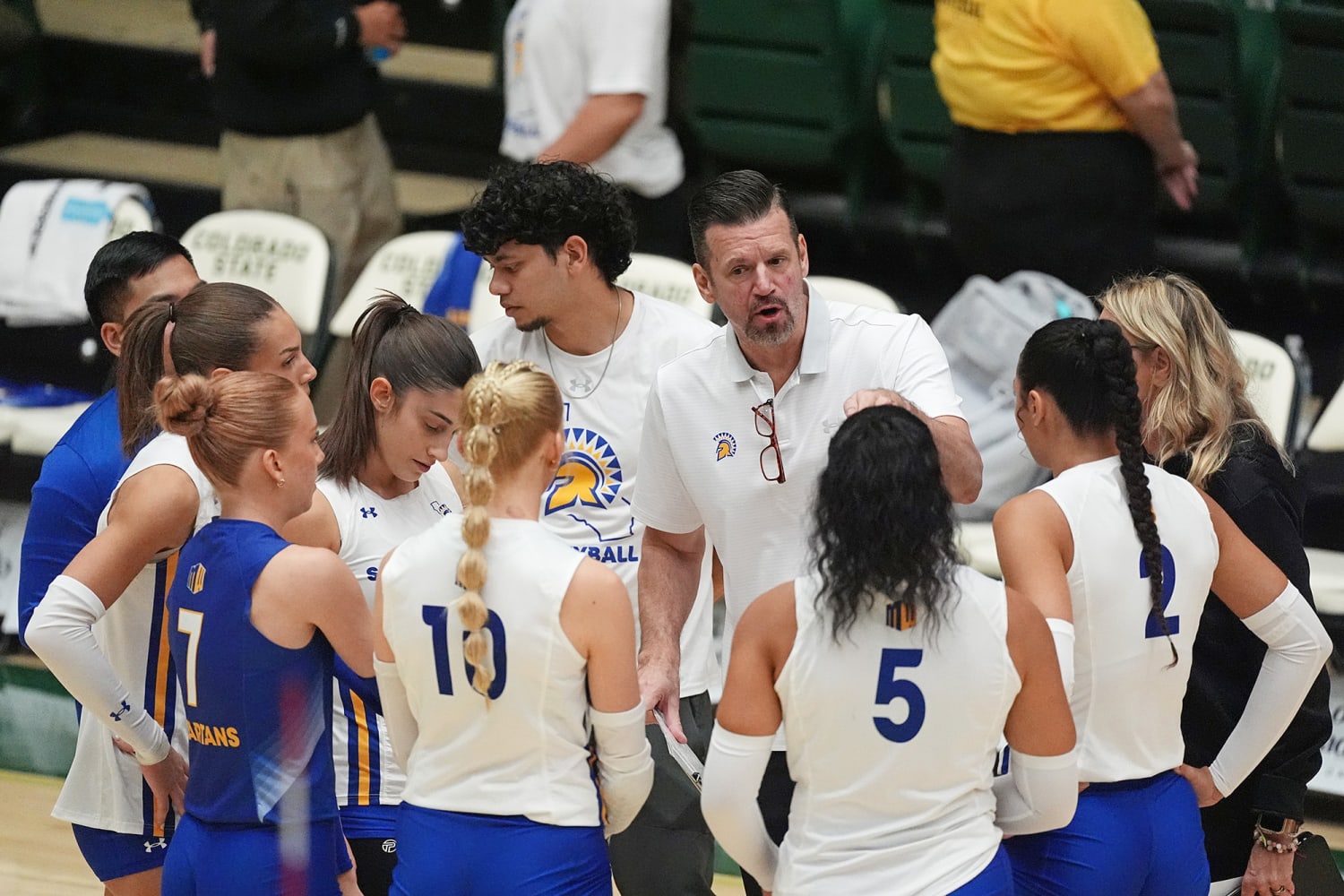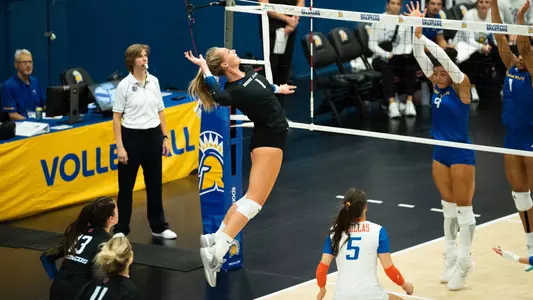In the world of college athletics, the intersection of sports, gender identity, and competitive integrity has ignited fervent debates and led to unprecedented actions. The latest chapter in this ongoing saga has unfolded in the Mountain West Conference, where the Boise State women’s volleyball team has chosen to forfeit its match against San Jose State (SJSU), marking the second instance of this decision as a protest against the NCAA’s policies regarding transgender athletes. This article explores the implications of this decision, the broader context of transgender participation in sports, and the fallout that has ensued.
Here's ads banner inside a post

Background: A Growing Divide
The controversy surrounding transgender athletes in women’s sports has been brewing for several years, reaching a boiling point as numerous states have introduced legislation either supporting or banning the participation of transgender athletes in school sports. Idaho, which became the first state to enact a transgender athlete ban with a bill signed into law in 2020, has sparked similar measures in 23 other states, reflecting a national divide on this issue.
Boise State’s forfeiture, announced for the Nov. 21 match against SJSU, comes as part of a broader refusal to compete against a team that, in the eyes of some, violates traditional understandings of fair play. With Boise State currently holding a sixth-place standing in the Mountain West Conference, this forfeiture could have significant implications for their postseason aspirations and the competitive landscape of the conference itself.
Here's ads banner inside a post

The Fallout from Forfeits
The consequences of Boise State’s decision extend beyond the immediate impact on their record. With this forfeit, San Jose State has now recorded five victories by forfeit this season, a striking and unusual situation in collegiate athletics. Other teams, including Nevada, Utah State, and Wyoming, have also forfeited matches against the Spartans, raising questions about the integrity of competition and the motivations behind these actions.

Here's ads banner inside a post
The Mountain West Conference, which is gearing up for its championship tournament in Las Vegas, faces the challenge of addressing the situation without exacerbating existing tensions. As the tournament approaches, with only the top six teams qualifying, the stakes are high, not just for Boise State but for all teams involved.

Political Influences and Public Reactions
The forfeit decision has drawn attention not only from sports enthusiasts but also from political figures. Idaho’s Governor Brad Little and Senator Jim Risch have publicly praised Boise State’s decision, framing it as a stance for “player safety for all of our female athletes.” Their statements underscore the intertwining of sports and politics, as legislative actions continue to shape the landscape of collegiate athletics.

In the eyes of some advocates, including SJSU volleyball captain Brooke Slusser, the NCAA’s current policies create an environment of discrimination against cisgender women. Slusser’s involvement in a lawsuit challenging these policies further complicates the narrative, as she highlights the concerns of female athletes who fear that their opportunities may be compromised.

Title IX and Transgender Rights
At the heart of the debate lies Title IX, a federal law enacted to protect against sex-based discrimination in educational institutions. While Title IX has historically supported the inclusion of women in sports, its application to transgender athletes has sparked legal battles. Slusser and other athletes argue that allowing transgender women to compete in women’s sports undermines the very protections Title IX seeks to uphold.

The legal landscape is evolving, with cases like Slusser’s lawsuit highlighting the complexities of reconciling gender identity with existing protections. As federal courts begin to address these challenges, the outcomes could have far-reaching implications for how sports organizations and institutions interpret and apply Title IX.
The State of Women’s Sports
As the forfeits accumulate, the state of women’s sports becomes increasingly precarious. The Mountain West Conference’s decision to allow for forfeits raises concerns about competitive integrity and the implications for teams striving to qualify for championships. With several teams in contention for postseason play, the ongoing situation could lead to significant shifts in rankings and opportunities.

For San Jose State, the unexpected influx of forfeit victories may appear advantageous on the surface, but it brings with it the question of legitimacy. While they are benefitting from forfeits, the circumstances surrounding these matches call into question the integrity of their performance.
A Conundrum for Athletes
Athletes on both sides of the issue are caught in a complex web of conflicting interests. For cisgender women, the prospect of competing against transgender athletes raises fears about fair play and opportunities. For transgender athletes, the response to policies and forfeits creates an environment of exclusion and stigmatization.
As the NCAA continues to grapple with these challenges, athletes like Slusser are stepping into the spotlight, advocating for what they believe to be their rights while navigating a landscape fraught with tension. The outcomes of these debates will shape the future of collegiate sports, influencing not only policies but also the lives of countless athletes.

The Future of Transgender Participation in Sports
The landscape of collegiate athletics is at a crossroads. As more states enact laws regarding transgender participation, the NCAA will need to reevaluate its policies to ensure fair competition while respecting the rights of all athletes. The situation in the Mountain West Conference serves as a case study of the complexities and challenges faced by sports organizations navigating this contentious terrain.
As the November 14 matchup between Wyoming and San Jose State looms, the uncertainty surrounding the future of the Mountain West Conference and its tournament will be closely monitored. The fallout from these decisions will resonate beyond the volleyball court, impacting discussions on gender identity, inclusion, and the future of sports.

A Turning Point in College Sports
The ongoing situation surrounding Boise State and San Jose State highlights the urgent need for dialogue and understanding within the realm of collegiate athletics. As athletes, politicians, and institutions grapple with these issues, the outcomes will shape not only the future of sports but also the broader cultural landscape. With the championship tournament on the horizon, the stakes have never been higher.

In navigating the complexities of this debate, it is essential to acknowledge the humanity of all athletes involved and to strive for solutions that foster inclusion while ensuring fair competition. As the conversations continue, one thing remains clear: the path forward will require empathy, understanding, and a commitment to the principles that underpin the spirit of sportsmanship.

